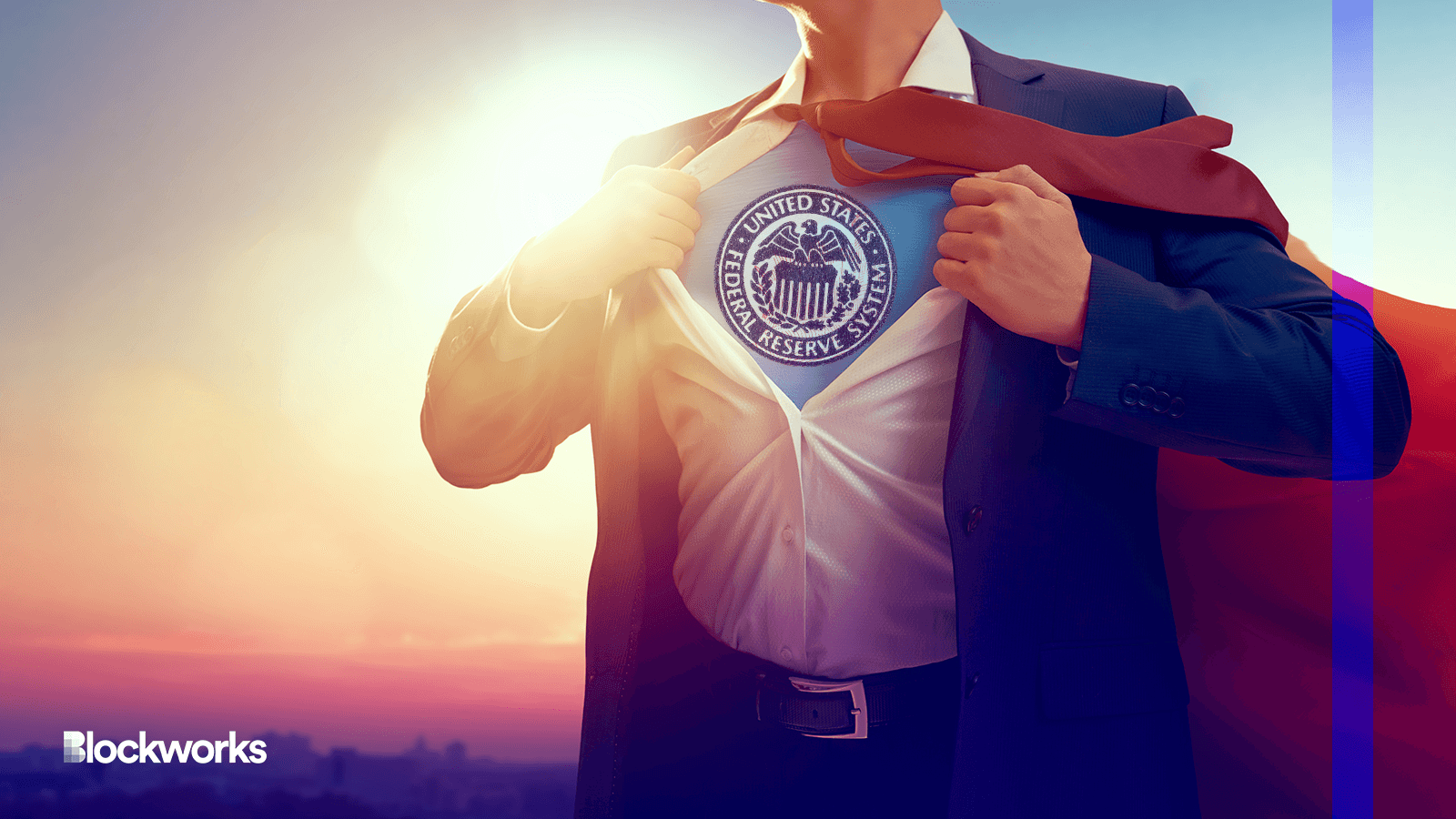FedNow Will Save the US From a CBDC
The US is long overdue for a faster payments system, and FedNow is the solution

Yuganov Konstantin and YamabikaY/Shutterstock modified by Blockworks
Up to this point, the movement of money from and across US bank accounts has been anything but swift.
It can take multiple days for simple bank transactions to settle. Compare this sub-par result to the daily consumer experience with most fintech apps like PayPal, Cash App or Bitcoin payments which makes such transactions nearly instant, and you’ll see why America is in need of better banking payment solutions.
FedNow is a bipartisan solution to modernize government payments — yet reactions have been unfavorable, wrong and weird. Misinformation and fear mongering conversations about central bank digital currency (CBDC) bogeymen muddles the reality that the FedNow system is a viable and favorable option for fast bank-to-bank payments.
The FedNow system is not a digital currency and it has nothing to do with a CBDC.
It’s quite the opposite — improving the speed of retail bank payments, through FedNow, will instead significantly reduce the need for a CBDC in the United States.
The birth of FedNow
As a Bitcoin advocate, Bitcoin consultant and former federal regulator, I am well aware of the transformational impact that real-time payments can have on households and businesses.
Consumers, businesses, financial institutions and fintechs all want and expect real-time payments. The payment friction consumers experienced during the distribution of Covid-19 emergency relief payments again highlighted the need for a significant government technology upgrade.
But despite the last 14 years of incredible global payment innovations across the private sector (the most significant of these being the Bitcoin monetary network) the US federal government still had not launched its own comparable digital payment systems for the banking industry — until now.
In March, the Federal Reserve shared the July 2023 launch date of the FedNow system, the US government’s first and only interbank settlement system.
FedNow is optional for financial institutions offering interoperability with other payment systems, such as Fedwire and the Automated Clearing House (ACH) system. The service is open to more than 10,000 financial institutions that operate within the Federal Reserve’s network.
FedNow will enable real-time payments, which means that transactions will be processed and settled almost instantly, 24/7/365. This feature will provide significant benefits for consumers, businesses, and financial institutions, such as faster access to funds, including paychecks and improved cash flow management.
But then conspiracy theories arise
Shortly after the FedNow announcement, Democratic presidential candidate Robert F. Kennedy Jr. wrongly announced on Twitter that the Federal Reserve would introduce its “‘FedNow’ Central Bank Digital Currency.”
Other under-informed politicians including Florida Governor Ron DeSantis used this moment to share fear mongering conversations about the coming launch of a CBDC by the Federal Reserve, by issuing warnings using strange terms like “woke banking.” Even weirder still have been the related conspiracy theorist views from none other than InfoWars’ Alex Jones.
But we’ve already mentioned that FedNow is not a CBDC; it operates at a higher level and impacts only bank-to-bank transactions, not consumer transactions. In fact, the creation of FedNow is so favorable for instant payments that it may even render the need for not only a CBDC, but all bank-to-bank cryptocurrency tokens (such as Ripple’s XRP) obsolete.
Most payments made in the United States rely on interbank payment services like ACH networks or wire transfer systems. As a result, the addition of the FedNow interbank settlement system will accelerate the vast majority of payments in the United States. As per the Federal Reserve, a key benefit of a CBDC is to “support faster and cheaper payments” — which now will already be achieved via the FedNow system.
Plus, having spent nearly six years of my 15 year banking career at the Federal Reserve Board of Governors in a bank supervision audit capacity, it is also clear that many politicians have severely underestimated the legal, compliance, financial, technology and regulatory administrative burden required to launch a central bank digital currency in the United States, not to mention the onslaught of congressional hearings and the passage of a specific CBDC law that would be required for a digital dollar to go live.
The continued success of FedNow will help ensure we don’t ever have to go down that CBDC road.






